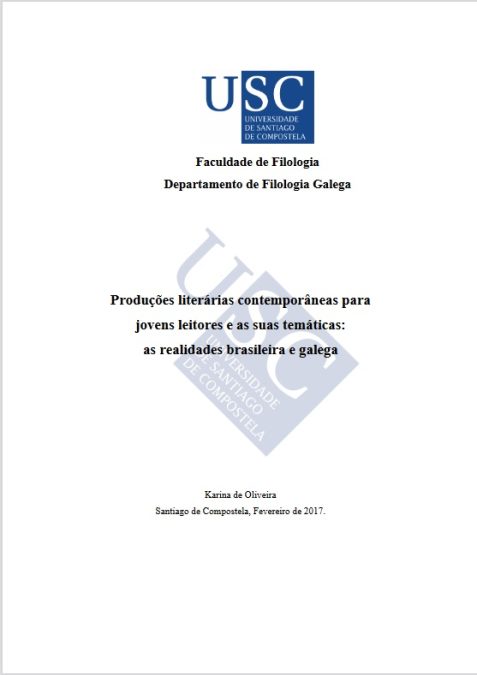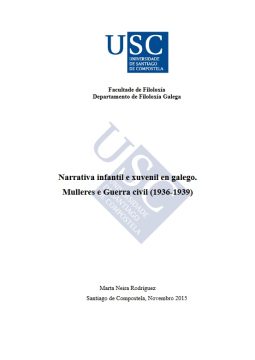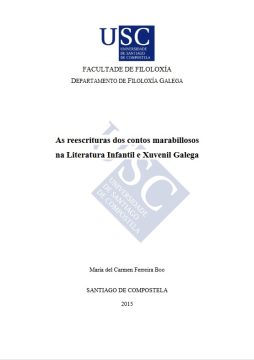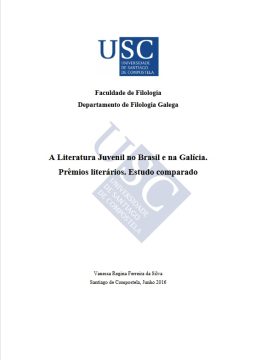Abstract
Given that the recognition of youth literature is a recent phenomenon, it is observed that the Brazilian and Galician youth literary subsystems, since the birth of both -the first in the 70s and the second in the 80s- have presented a great advance in the issues addressed in the youth narrative genre, especially in those who have long been left out, such as school harassment, sexual violence, terminal illness, terrorism, prejudice, death, among other conflicts experienced by the young protagonists of these works. Overall, current youth narrative productions have provided greater identification with adolescents, as Martha (2010b: 121) has already pointed out, as young people can recognize themselves in this fictional world and reflect on their condition during a period of turbulence. Thus, this thesis aims to trace and analyse, based on comparative literature studies, recurring themes in a corpus of twenty-four contemporary Brazilian and Galician youth narratives of the 21st century (2000-2012), twelve from each area. The theoretical foundation of this work includes studies of comparative literature and thematology, such as those of Claudio Guillén, Tânia Carvalhal and Eduardo Coutinho, Cristina Naupert, Genara Pulido Tirado, among others. In addition, we use, above all, the research of João Luís Ceccantini, Alice Áurea Penteado Martha, Vera Teixeira de Aguiar, Blanca-Ana Roig Rechou, to make a brief retrospective of the formation and consolidation of the Brazilian and Galician youth subsystems, respectively. Research has shown that the two contexts present fertile ground for comparisons -approximations and distances- especially about the conflicts experienced by the protagonists of these narratives. Finally, we believe that this research contributes not only to the development of the youth literary subsystem in the two areas in question, but also as a tool for reading mediators.






